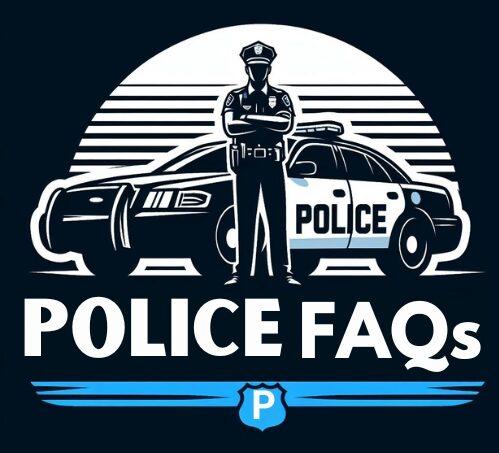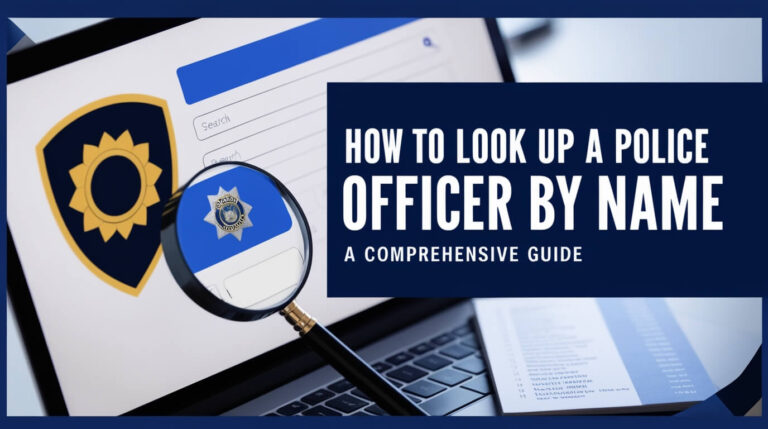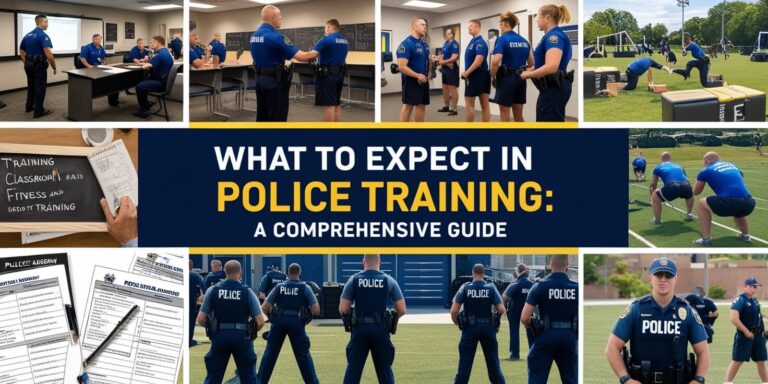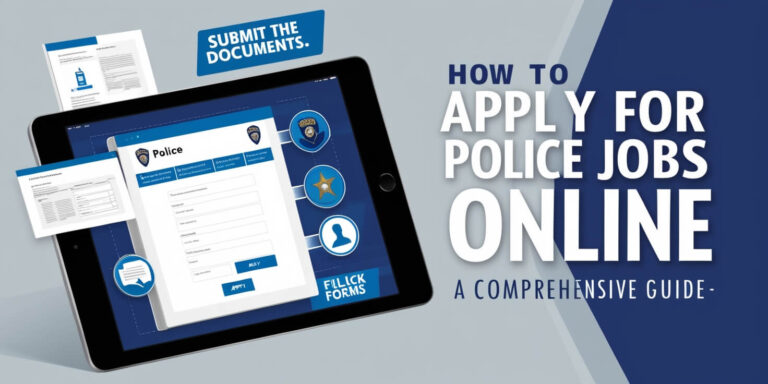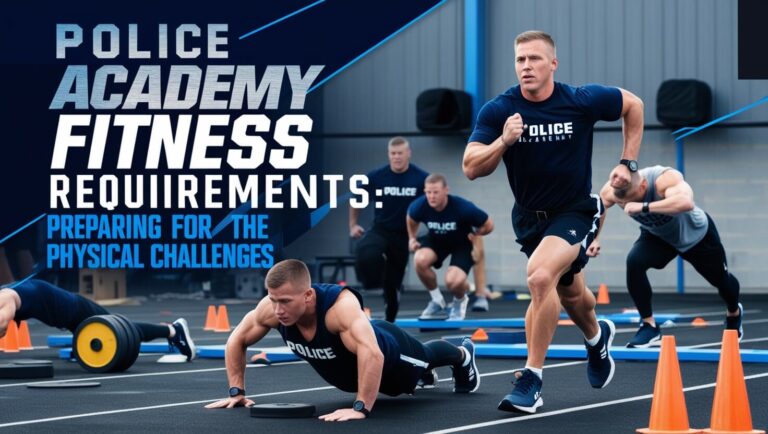Police Job Application Process: Your Complete 2024 Guide
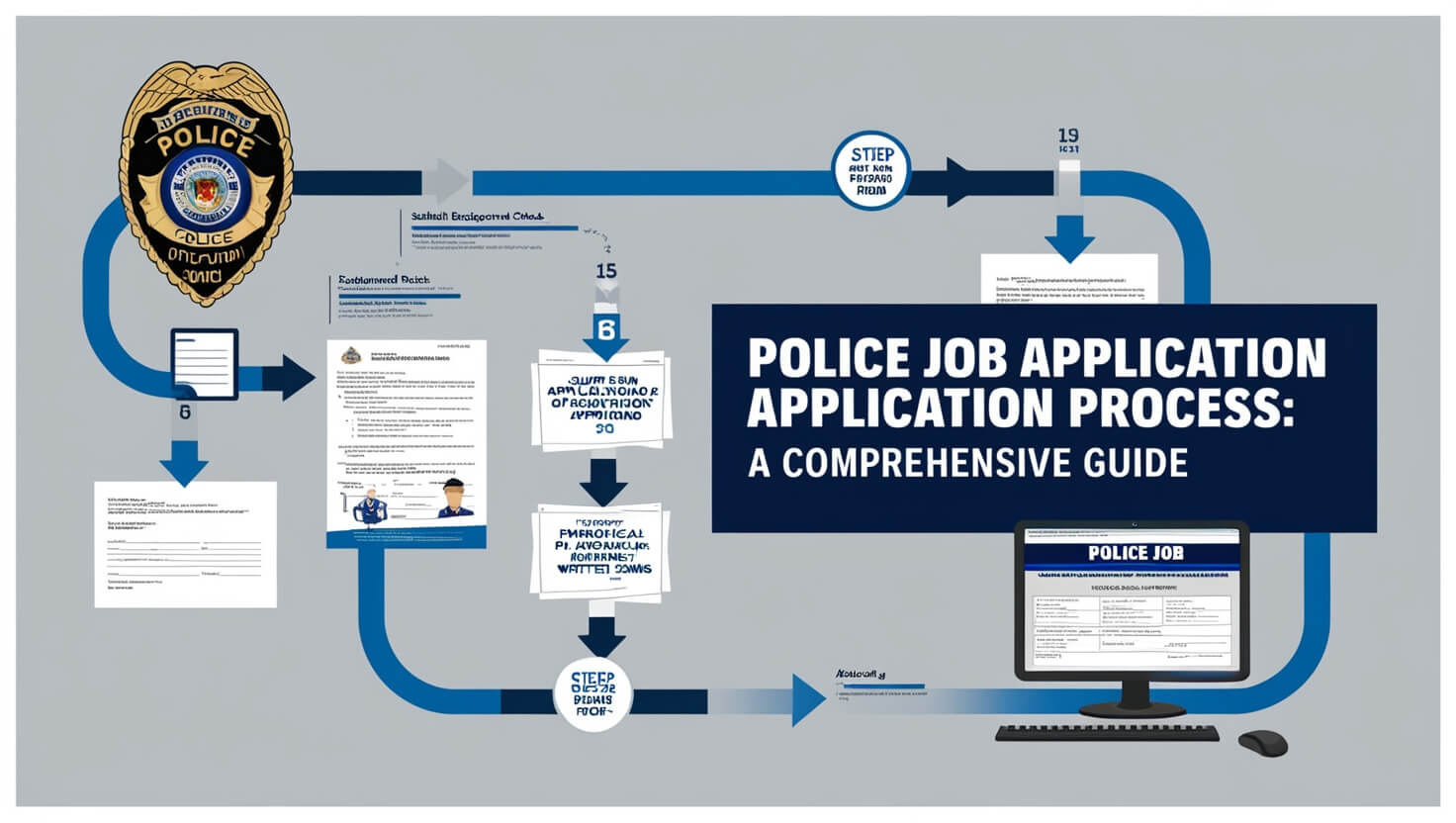
Becoming a police officer is a noble and challenging career path. The police job application process involves multiple steps, including eligibility checks, written exams, physical fitness tests, interviews, and background investigations. This comprehensive guide will walk you through each stage, providing valuable insights and tips to help you succeed in your journey to join law enforcement.
Introduction: Embarking on Your Law Enforcement Career
Law enforcement plays a crucial role in maintaining public safety and upholding justice. If you’re considering a career as a police officer, you’re stepping into a world of responsibility, community service, and personal growth. The path to becoming a police officer isn’t always easy, but it’s undoubtedly rewarding.
The police job application process can seem daunting at first glance. It’s designed to be thorough, ensuring that only the most qualified and dedicated individuals join the force. But don’t worry – we’re here to break it down for you, step by step.
Understanding the Basic Requirements for Police Officers
Before diving into the application process, it’s essential to know if you meet the basic criteria. While requirements may vary slightly between different police forces, there are some common standards you’ll need to meet.
Age and Citizenship Criteria
Most police departments require applicants to be at least 18 years old, though some may set the minimum age at 21. There’s usually no upper age limit, but you’ll need to be physically capable of performing the job. You must also be a U.S. citizen or a permanent resident alien who has applied for citizenship.
Educational Qualifications
The minimum educational requirement is typically a high school diploma or GED. However, many departments now prefer candidates with some college education or a bachelor’s degree. Some forces offer graduate programs for those with advanced degrees.
Physical Fitness Standards
Police work can be physically demanding. You’ll need to pass a physical fitness test that usually includes elements like running, push-ups, sit-ups, and an obstacle course. Start working on your fitness early – it’ll pay off during the application process and throughout your career.
Background and Character Requirements
A clean criminal record is crucial. Minor offenses might be overlooked, but felonies or serious misdemeanors will likely disqualify you. You’ll also need to demonstrate good moral character and financial responsibility.
Step-by-Step Breakdown of the Police Job Application Process
Now that we’ve covered the basics, let’s walk through the police job application process in detail.
Initial Eligibility Check
Before you invest time in a full application, most departments offer a quick eligibility check. This usually involves answering a few basic questions about your age, education, and background. It’s a simple step that can save you time if you don’t meet the basic criteria.
Submitting Your Application Form
If you pass the eligibility check, you’ll move on to the full application. This form is comprehensive, often requiring detailed information about your:
- Personal background
- Education history
- Employment history
- Residences
- References
- Any military service
Take your time with this step. Be thorough and honest – remember, everything will be verified later in the process.
The Sifting Process: What to Expect
After submitting your application, it goes through a sifting process. This is where the department reviews applications to determine which candidates will move forward. They’re looking at your qualifications, experience, and how well you might fit into the force.
Don’t be discouraged if you don’t hear back immediately. This process can take several weeks, depending on the number of applicants.
Online Assessments and Their Components
If you make it through the initial sift, you’ll likely face a series of online assessments. These typically include:
- Competency-Based Interview (CBI): This video interview assesses how you’ve handled specific situations in the past.
- Written Exercise: You’ll be given a scenario and asked to complete a written task, often in the role of a police constable.
- Briefing Exercise: This verbal exercise tests your ability to analyze information and present recommendations.
These assessments evaluate key competencies like decision-making, communication skills, and problem-solving abilities.
In-Person Evaluations: Medical and Fitness Tests
If you perform well in the online assessments, you’ll be invited for in-person evaluations. These typically include:
- Medical Assessment: A thorough check of your physical health to ensure you’re fit for duty.
- Fitness Test: Often called the “bleep test,” this multi-stage fitness test assesses your cardiovascular endurance.
Prepare for these tests by maintaining a healthy lifestyle and following a consistent fitness routine.
Background Checks and Vetting Procedures
The background investigation is one of the most thorough parts of the police job application process. It includes:
- Criminal record checks
- Credit history review
- Reference checks
- Polygraph test (in some departments)
- Drug screening
Be prepared for investigators to dig deep into your past. Honesty throughout the application process is crucial – any discrepancies can lead to disqualification.
Receiving a Decision on Your Application
After completing all these steps, you’ll receive a decision on your application. If successful, you’ll be given a conditional offer of employment. This offer is typically contingent on completing police academy training.
Preparing for Success in Your Police Job Application
Now that you understand the process, let’s look at how you can prepare to excel at each stage.
Tips for Acing the Written Exam
The written exam tests your cognitive abilities and basic skills. To prepare:
- Review basic math and reading comprehension
- Practice time management
- Study sample questions available online
- Consider taking a prep course if offered by your local department
Strategies for Excelling in the Physical Fitness Test
Physical fitness is crucial for police officers. To prepare for the fitness test:
- Start a regular exercise routine focusing on cardiovascular endurance and strength
- Practice the specific exercises in the test (e.g., push-ups, sit-ups)
- Gradually increase your running distance and speed
- Consider working with a personal trainer familiar with police fitness standards
Mastering the Oral Interview
The oral interview is your chance to make a strong personal impression. Here’s how to prepare:
- Research the department and understand its values and mission
- Practice answering common interview questions
- Prepare examples that demonstrate your skills and character
- Dress professionally and arrive early
- Stay calm and composed during the interview
Navigating the Background Investigation Process
To ensure a smooth background check:
- Be honest throughout your application
- Prepare a list of references, including employers and personal contacts
- Gather important documents like transcripts and military records
- Be prepared to explain any past issues or mistakes
- Maintain a clean online presence
Common Challenges in the Police Application Process and How to Overcome Them
The police job application process can be stressful. Here are some common challenges and how to handle them:
Dealing with Application Anxiety
It’s normal to feel nervous during the application process. To manage anxiety:
- Stay organized and prepare thoroughly for each stage
- Practice relaxation techniques like deep breathing
- Remember that nervousness shows you care about the outcome
- Focus on what you can control and let go of what you can’t
Addressing Past Mistakes or Minor Offenses
If you have minor offenses in your past:
- Be upfront about them in your application
- Explain what you learned from the experience
- Demonstrate how you’ve grown and changed since then
- Provide evidence of good character and responsible behavior
Improving Physical Fitness for the Tests
If you’re struggling with the physical requirements:
- Start training well in advance of your application
- Set realistic goals and track your progress
- Consider joining a gym or working with a trainer
- Remember that consistency is key – small improvements add up over time
Balancing Preparation with Current Commitments
Preparing for the police job application process while managing other responsibilities can be challenging. To maintain balance:
- Create a study and training schedule
- Prioritize your tasks and manage your time effectively
- Seek support from family and friends
- Take care of your physical and mental health
What Happens After You’re Accepted: The Police Academy and Beyond
Congratulations! You’ve made it through the application process. But your journey is just beginning. Here’s what comes next:
Overview of Police Academy Training
Police academy training is intense and comprehensive. It typically includes:
- Classroom instruction on law and police procedures
- Physical training and defensive tactics
- Firearms training
- Driving instruction
- Scenario-based training
The academy can last anywhere from 13 to 36 weeks, depending on the department.
Probationary Period for New Officers
After graduating from the academy, you’ll enter a probationary period as a new officer. This usually lasts 12 to 18 months. During this time, you’ll work under close supervision, applying what you learned in the academy to real-world situations.
Continuing Education and Career Advancement in Law Enforcement
Your education doesn’t stop after the academy. Many departments offer or require continuing education. You might also pursue advanced degrees or specialized training to move up in your career.
Alternative Entry Routes into Policing
While we’ve focused on the traditional police job application process, there are other paths into law enforcement:
Community Support Officer Pathway
Some departments offer a Community Support Officer role as a stepping stone to becoming a full police officer. This can be a great way to gain experience and understanding of the job.
Special Constable to Regular Officer
Serving as a Special Constable (a part-time, volunteer role) can provide valuable experience and potentially streamline your path to becoming a regular officer.
Police Now Graduate Programmes
Some forces offer specialized graduate programs for those with bachelor’s degrees. These programs often fast-track participants into leadership roles.
Diversity and Inclusion in Police Recruitment
Police forces are actively working to increase diversity in their ranks. This effort recognizes that a diverse police force better serves and represents the community.
Initiatives to Increase Diversity in Law Enforcement
Many departments have specific recruitment initiatives aimed at underrepresented groups. These might include targeted outreach programs, mentorship opportunities, and recruitment events in diverse communities.
Support for Underrepresented Groups in the Application Process
Some departments offer additional support for applicants from underrepresented groups. This might include:
- Pre-application information sessions
- Mentoring programs
- Fitness training support
- Study groups for written exams
If you’re from an underrepresented group, don’t hesitate to ask about these resources.
Frequently Asked Questions About the Police Job Application Process
Let’s address some common questions about becoming a police officer:
How long does the entire process take?
The police job application process can take several months to a year, depending on the department and the number of applicants.
Can I apply to multiple police forces at once?
Yes, you can apply to multiple departments. However, be prepared for the time commitment required for each application process.
What if I fail one part of the application process?
Many departments allow you to retake certain parts of the process, such as the physical fitness test. However, policies vary, so check with each department.
Are there age limits for becoming a police officer?
Most departments have a minimum age of 18 or 21, but many don’t have an upper age limit as long as you can meet the physical requirements.
How can I best prepare for the application process?
Start early, stay organized, focus on your physical fitness, and thoroughly research the department and role. Consider reaching out to current officers for advice.
Conclusion: Taking the First Step Towards a Rewarding Career in Law Enforcement
The police job application process is rigorous, but it’s designed to ensure that those who make it through are well-prepared for the challenges and responsibilities of law enforcement. By understanding each step of the process and preparing thoroughly, you can increase your chances of success.
Remember, becoming a police officer is more than just a job – it’s a calling to serve and protect your community. The skills and experiences you gain through the application process will serve you well throughout your career in law enforcement.
Are you ready to take on the challenge? The first step is simple: check your eligibility and submit that application. Your future in law enforcement is waiting!
